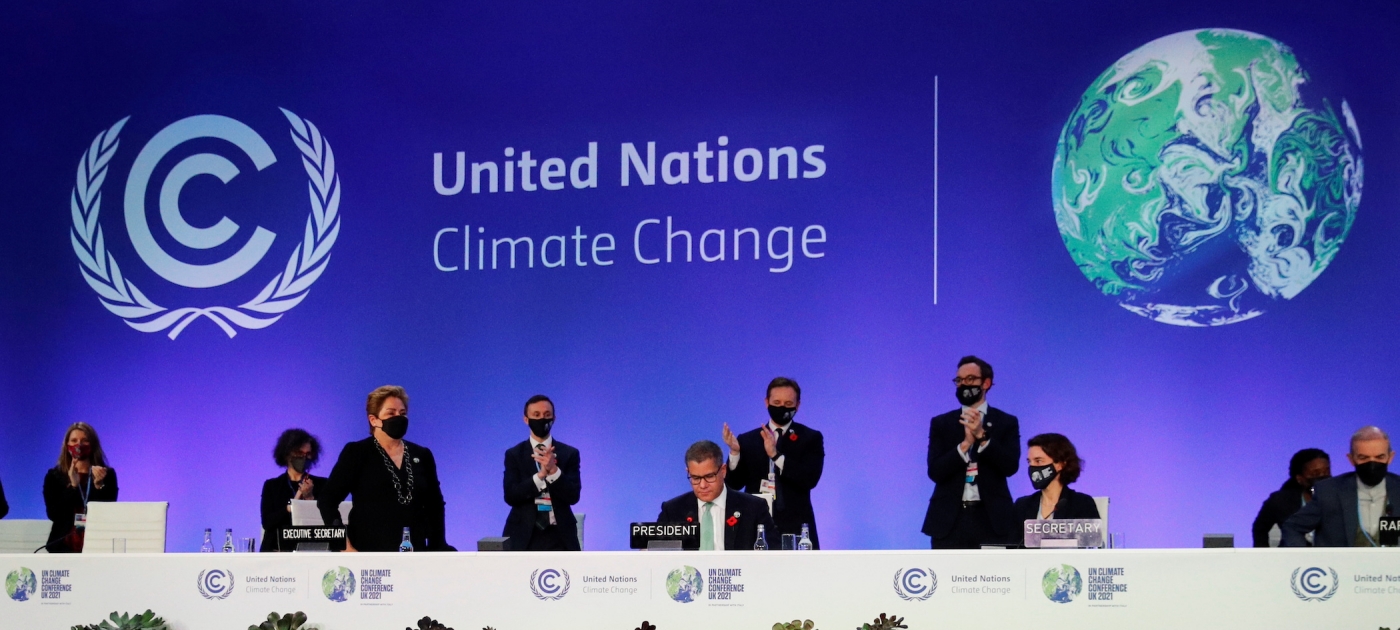New and Emerging ESG Laws and Regulations
Across the world, governments are driving change in the ESG sphere and requiring greater accountability for ESG issues. Regulators are responding to investor and consumer concerns about corporate “woke-washing” and “green-washing” by creating greater accountability and consistency across reporting frameworks and compliance requirements. This article will summarise the new and emerging ESG laws and regulations, and how these changes are shaping the way in which businesses operate.
1. FIRST TO LAUNCH
1.1 The European Union has in many respects been a first mover in the global effort to legislate on ESG. Whilst this is forcing companies to take stock of their ESG impact to comply with reporting requirements, these developments show a heavy focus on assessing sustainability within the EU.
1.2 Taxonomy Regulation
(a) Regulation (EU) 2020/852 (the “Taxonomy Regulation”) establishes a taxonomy as a framework to encourage sustainable investment. The Taxonomy Regulation (in force from 1 January 2022 for climate change mitigation and adaptation provisions, and 1 January 2023 for all other provisions) will address water use, transition to a circular economy, pollution prevention and control, and protection and restoration of biodiversity and ecosystems. It also amends the Disclosure Regulation, which mandates that investment firms disclose their approach to ESG on their websites and in precontractual and periodic disclosures.
(b) The taxonomy allows financial market participants and European authorities to assess whether certain economic activities are “sustainable” based on one or more of six sustainability objectives. Economic activities need to meet four conditions in relation to those objectives to be considered environmentally sustainable. These conditions include assessing whether the economic activity contributes substantially to one or more of the sustainability objectives and whether the activity complies with minimum specified safeguards listed in the Taxonomy Regulation.

1.3 Amendments to MiFID, AIFMD and UCITS
(a) The European Commission has introduced a series of draft measures amending the MiFID Delegated Directive, the MiFID Organisational Regulation, the AIFMD Level 2 Regulation and the UCITS Implementing Directive (in force from August 2022 and November 2022 for the MiFID product governance measures). These laws are amended to, among other things:
(i) update investors’ internal organisation and risk management policies;
(ii) update due diligence processes;
(iii) integrate training on sustainability risk; and
(iv) update suitability processes to include sustainability preferences.
1.4 SEC regulation disclosures
(a) The US has also made changes to their climate-related disclosure regime, with the U.S. Securities and Exchange Commission (SEC) proposing rules that require US listed companies to make more substantiated disclosures in relation to climate reporting. This represented a critical step forward in the growing focus on sustainability and climate matters.
2. SUPPLY CHAIN DUE DILIGENCE
2.1 In France, the Duty of Vigilance law establishes a legally binding obligation for parent companies to identify and prevent adverse human rights and environmental impact resulting from themselves, companies they control, and activities of subcontractors and suppliers with whom they have an established commercial relationship. The largest companies in France will therefore assess these risks under annual public vigilance plans.
2.2 Similarly, Germany has adopted the ‘Act on Corporate Due Diligence in Supple Chains’ (in force from 2023), which obliges large companies with headquarters in Germany to ensure that human rights are observed throughout their entire supply chain. Companies will be required to analyse risks to human rights, prevent violations and provide remedies, and create complaints procedures. These obligations are supported by severe fines for non-compliance and uncapped liabilities to enable private enforcement.
2.3 The UK has followed suit with the Environment Act 2021 (in force from November 2021), which forms part of a new legal framework for environmental protection, given the UK no longer comes under EU law post-Brexit. The bill includes provisions to improve air and water quality, protect wildlife, ensure companies are complying with local laws, and place restrictions on illegal deforestation by mandating that large businesses (with a specified turnover) assess their supply chain.
2.4 The UK government has also announced that the UK will make climate-related financial disclosures fully mandatory, through the Task Force on Climate-related Financial Disclosures (“TCFD”). The TCFD disclosure regime, which is applicable to all UK registered companies, financial advisers and institutions, insurers, pension schemes and other organisations, also covers institutions’ supply and/or value chain. The TCFD (in force from April 2022) demonstrates active moves towards demanding specific accountability from businesses.

3. TACKLING CLIMATE CHANGE
3.1 Environmental legislation has been one of the fastest-moving areas of ESG law recently, and governments across the world are waking up to the huge public interest in tackling climate change. Particularly in the wake of COP26, more countries have committed to reducing their greenhouse gas emissions to net zero by the middle of the 21st century. It is not only governments that feel the pressure to reduce emissions, as companies are also required by law to go net zero.
3.2 The Glasgow Climate Pact
(a) The Glasgow Climate Pact was the main output from the COP26 negotiations. The Pact requires the Parties (being the 197 states which are party to the United Nations Framework Convention on Climate Change) to commit to climate action and policymaking. Among other things, the pact commits countries to revisit and strengthen targets, accelerate efforts towards the ‘phasedown of unabated coal power’, and reduce global carbon dioxide emissions. The Pact is expected to impact businesses as governments legislate in an attempt to meet these commitments.
3.3 Emissions trading schemes
(a) A recent trend in climate policy has been the introduction of emissions trading schemes, under which emissions obligations are to be kept by participating businesses. The most recent development is the establishment of the global carbon offsets and emissions market at COP26, which will deliver on Article 6 of the Paris Agreement. As companies are required by law to reach net zero, voluntary entry into carbon markets will likely make this goal achievable, particularly for companies with high emissions outputs in the energy and transport sectors. More clarity on the emissions market regulations are expected in due course.
4. CORPORATE RESPONSIBILITY
4.1 Corporate Conduct
(a) Several countries have recently taken steps to encourage transparency and good corporate governance. For example, the Belgian Corporate Governance Code, which applies to Belgian companies trading on a regulated market, includes provisions encouraging independence of Board members, transparent governance procedures and equal treatment of shareholders.
(b) In the UK, the Financial Reporting Council published the UK Stewardship Code, which sets out good practice for institutional investors on engagement with investee companies. Among other things, institutional investors must set guidelines on how they will engage with an investee company on various ESG-related risks. By contrast, the U.S. has been much less keen to adopt ESG-specific reporting requirements, and instead the disclosure of ESG risks is only required if the risks are “material”.
(c) In the UK, responsibility is also becoming mandatory in the world of pensions following the implementation of the Pension Schemes Act 2021. The Act allows the government to regulate when and how pension schemes should be required to adopt enhanced governance requirements and report in line with the TCFD recommendations. Pension scheme trustees will need to put in place effective governance, strategy, risk management and accompanying metrics in relation to climate risks and opportunities. The Act currently only affects the largest pension schemes, and the government will consider whether to include smaller schemes in 2023.
The world of ESG law is gaining momentum and presents challenges and opportunities for every business. Hogan Lovells has a wealth of experience in these fields and can help you navigate these changing times. Contact us for more information.
Adrian has been with Hogan Lovells for over 30 years and has been on the Hogan Lovells Global Board member since 2018. He is also a serial intrapreneur and innovator. For ten years he co-led our Infrastructure, Energy, Resources, and Projects Practice with a mission to improve global equality of access to infrastructure and energy services.
Inspired by Nobel prize winning Mohammed Younis and the micro finance movement, Adrian is focussed on changing the world of business for the better. After co-founding the Social Impact practice, he joined the World Economic Forum’s Social Impact Council to promote better business and social impact globally. He works with global Governments, impact organisations such as Ashoka and major corporate clients and is a member of the CityUK Green and Sustainable Finance Group.
Adrian currently leads our ESG practice, working with global governments to foster legal framework change, creating diverse non-hierarchical team structures which lean on collaboration and inspiration with an emphasis on disruption and seeking forgiveness not permission.
Related links
Main menu



